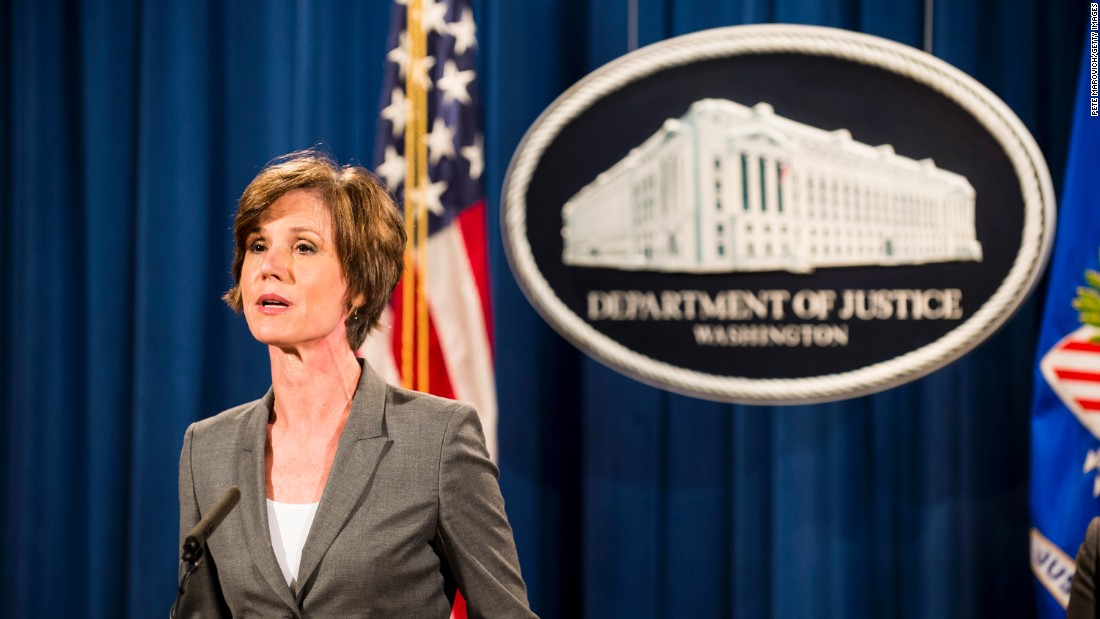
Washington – Acting Attorney General Sally Yates has told Justice Department lawyers not to make legal arguments defending President Donald Trump’s executive order on immigration and refugees, according to sources familiar with the order.
The move sets up a dramatic clash between the White House and Yates, who was appointed by President Barack Obama and is set to serve until Sen. Jeff Sessions, Trump’s nominee for attorney general, is confirmed.
“My responsibility is to ensure that the position of the Department of Justice is not only legally defensible, but is informed by our best view of what the law is after consideration of all the facts,” she said in a letter. “In addition, I am responsible for ensuring that the positions we take in court remain consistent with this institution’s solemn obligation to always seek justice and stand for what is right.”
Trump’s executive order, signed Friday, bars citizens of seven Muslim-majority countries from entering the United States for the next 90 days, suspends the admission of all refugees for 120 days and indefinitely suspends the Syrian refugee program. Yates’ decision came amid a flood of protests against the executive order nationwide and after four federal judges ruled against Trump’s order, staying its impact on people who were detained at US airports over the weekend.
“At present, I am not convinced that the defense of the executive order is consistent with these responsibilities nor am I convinced that the executive order is lawful,” Yates wrote.
Yates’ decision is likely to be extremely short-lived as Sessions is scheduled for a vote in the Senate Judiciary Committee on Tuesday.
White House policy director Stephen Miller, who helped craft the executive order, called Yates’ decision “a further demonstration of how politicized our legal system has become.”
“It’s sad that our politics have become so politicized, that you have people refusing to enforce our laws,” Miller said Monday night on MSNBC.
Miller also defended the executive order’s legality, insisting that the Immigration and Nationality Act gives the President “the ability to exclude any class of would-be visitors or immigrants to our country based on our national security interests.”
Currently, there are cases filed in at least five states including Virginia, New York, Massachusetts, Washington and California that are challenging Trump’s order.
The decision effectively grounds the executive order for the next few days until Sessions is sworn in.
The White House could choose to fire Yates and install someone who will carry out the administration¹s priorities.
“This will be moot. Then we will very much see the Trump Justice Department led by Jeff Sessions defend this executive order pretty vigorously. And then it will be up to the courts,” said Steve Vladeck, a CNN contributor and law professor at the University of Texas School of Law.
Senate Minority Leader Chuck Schumer told CNN’s Erin Burnett Monday the Justice Department decision reflects poorly on the Trump administration.
“When you do something as important as this, it can’t be a Twitter-type of activity,” Schumer said. “This has to be thoroughly vetted … and it’s a very bad omen for this presidency.”
As reported by CNN
